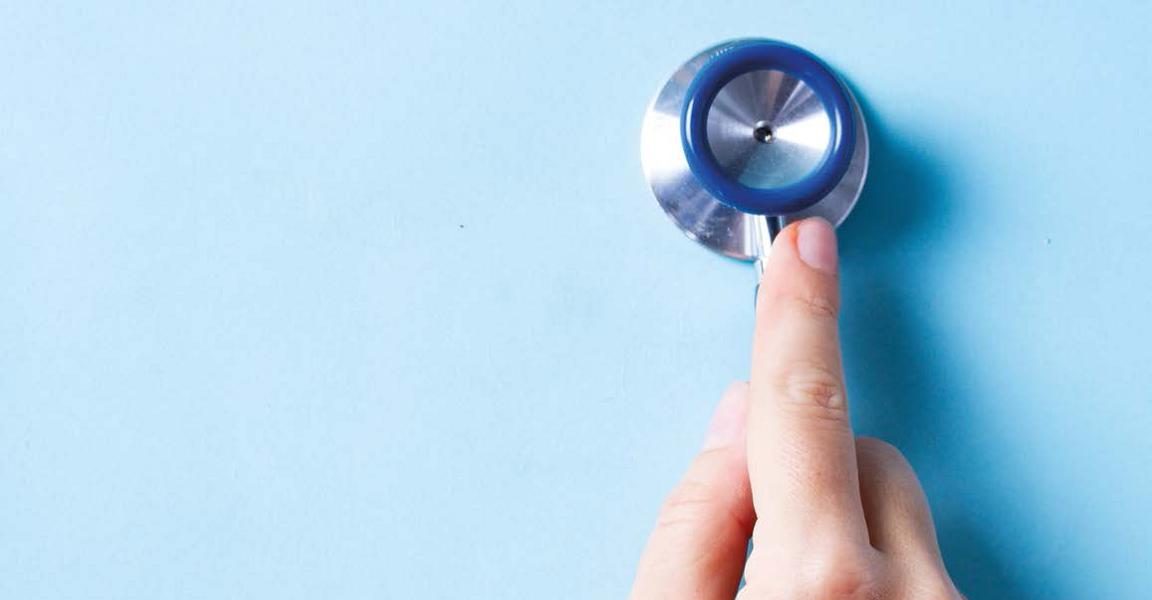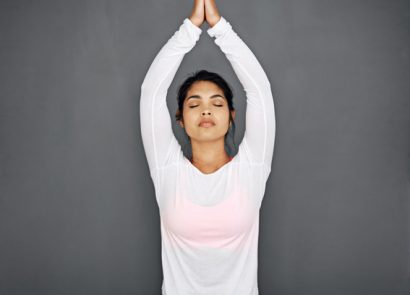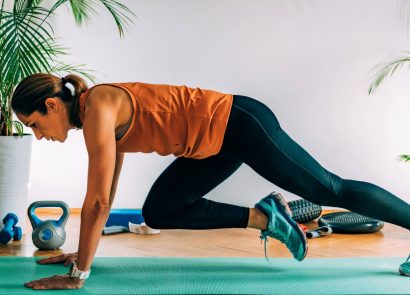Have you had your health screening?
Health screening uptake has dropped by 50 percent since the pressure of the pandemic, but attending them is the best health insurance we could possibly give ourselves. Our team of experts delve into the details…
A letter advising you to book your next health screening might not be the most exciting of post, but making time for these vital checks is integral to your long-term health. “Screenings help to identify health risks as quickly as possible,” explains Dr Ashish Srivastava, GP and medical director (gogodoc.com). “Detecting cancer early on not only prevents the spread of disease and improve a patient‘s outcome considerably; research also shows that bowel, breast, ovarian, prostate and lung cancer survival rates are drastically improved with early diagnosis.” With a disproportionate number of screenings not being taken up (largely because of Covid), here’s everything you need to know about what you need and when.
In your 30S
• Eye examination
• Hearing test
• Cervical screening (your cervical cancer risk is highest between the ages of 30 and 34).
• Genetic tests (if there is a family history of certain diseases, such as breast cancer)
• Cholesterol screening (if there is a family history of premature heart disease)
• Cardiac screening from the ages 14-35 (if there has been a young sudden death in the family, you are entitled to be screened on the NHS)
If you’re thinking of having children in your 30s, then it can be beneficial to get a health check beforehand. “Factors that can contribute to fertility issues are timing, health or age,” says Tim Child, group medical director at the TFP Fertility Group. Discussing your fertility with your GP should be your first point of call, but you can seek out a fertility specialist and/or go privately if you like.
“There are certain life-altering diseases for which age becomes a risk factor, so by having regular screenings and detecting any problems early, your body has the best chance of fighting back,” says Dr Tom Micklewright (pushdoctor.co.uk). “Women in their 30s should have the following health screenings to help detect problems that could later affect them.”
In your 40S
“Once you reach your 40s, the risk of conditions such as heart disease, cancer and type 2 diabetes increases,” says Dr Micklewright. “To help identify any concerns as early as possible, the NHS offers a free health check-up every five years to anyone over the age of 40. This check-up includes screening for cholesterol, diabetes and kidney disease, as well as heart disease risk assessment.” In addition to the NHS health check, and continuing the health screenings from their 30s, women over 40 should also ensure they are regularly checking their blood pressure. And, while you might associate pap smears with your 20s and 30s, it’s still important to get your cervical screening checks right into your 50s and 60s, as Dr Angela Rai explains: “Women aged 25-64 years of age should undergo cervical screening and women who have abnormal smear results will be referred for colposcopy.”
In your 50S
From your 50s onward, you will also be invited to routine breast checks to identify possible breast cancer. “The NHS offers breast screening from the age of 50-71,” says Dr Rai. “However, women can take the opportunity to have this from the age of 40. A screening usually includes a mammogram and/or ultrasound of the breasts. If ovarian or breast cancer runs in the family, genetic testing can be arranged for BRCA1 and BRCA2 genes.” Another health risk that women need to be aware of in their 50s is cardiovascular disease, as this age group, in particular, have an increased risk of heart disease after the menopause. “As oestrogen protects the arteries, a decrease due to the menopause can cause changes in blood vessel walls that may cause plaque formation and an increase in LDL (bad cholesterol),” says Dr Rai. “Screening tests include checking cholesterol levels, exercise ECG test and CT calcium score.” From the age of 55, bowel cancer checks are also offered by the NHS. “Screening for bowel cancer include the FIT test (faecal immunochemical test),” says Dr Rai. “This aims to detect tiny amounts of blood in stool. This can be done on an annual basis, but bowel screening tests can be offered under 45 years if there is a family history or symptoms.”
In your 60S
The screenings that you’re advised to take up in your 50s are also applicable in your 60s, but there are other health problems that this age group should also be mindful of, that aren’t screened for. “Although there is no screening programme for ovarian cancer on the NHS, there are two main tests that can help investigations,” says Dr Rai. “A CA125 blood test and transvaginal ultrasound. Risk factors for ovarian cancer include a family history of ovarian or breast cancer and these individuals may require genetic screening. Ovarian cancer usually affects women after the menopause or over 50, but can sometime occur in younger women.” As we age, our bone density tends to become weaker and women who have an early menopause are particularly at risk. “After the age of 50, there is an increased risk of osteoporosis (thin bones), as oestrogen levels drop during the menopause. Those who have an early menopause (before age 45), a hysterectomy or absent periods earlier in life due to a low body mass, are also at higher risk. Other risk factors include prolonged steroid usage, thyroid disorders, and a family history of osteoporosis.”
Age is just a number
“Health screenings can be needed for many different reasons other than for someone’s age,” says Dr Srivastava. “For example, it may be the case that you need to assess the risk of a genetic illness which runs in the family and to identify the possibility of passing this down to your child. This can help someone identify how to improve their lifestyle and prevent the severity of illness or stop it from happening to them.”
Be in the know
Why have I not received a letter reminding me to book a health screening?
“Many of us are due a health screening from the past 18 months,” says Dr Mitra Dutt, a Lloyds Pharmacy online doctor. “However, because of Covid-19, there have been delays to some invitations and follow-up appointments. “Over the pandemic, health screenings were delayed to first protect people from Covid-19 and secondly, NHS staff were needed to support critical services. The good news is that screening programmes have resumed in the UK.”
What should I do if covid has delayed my screening?
“Due to the backlog, there are now a lot of people waiting for tests and appointments,” explains Dr Dutt. “However, the NHS will try to reach everyone as soon as possible. It’s important to remember that screening is for healthy people with no symptoms and if you notice any unusual changes to your body that don’t go away, talk to your doctor. In most cases it won’t be cancer, but it’s best to get it checked out.”
What should I do if I haven’t been invited to a health screening?
If you think you might need a health screening and haven’t had a letter advising you to book, then speak to your doctor. You can find out more about the health checks available to you at nhs.uk.



















